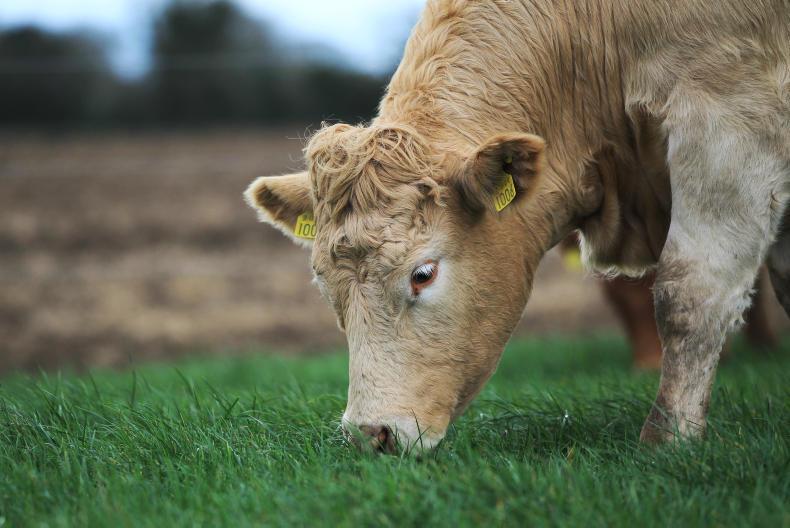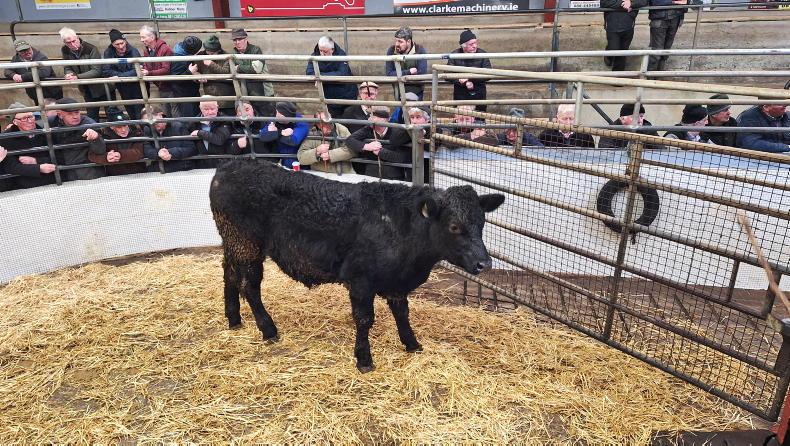Secret plans are being put in place to reduce the impact of devastating food tariffs unveiled by the British government this week.
The Irish Farmers Journal has learned that UK officials will allow beef, dairy, sheepmeat, pigs and poultry products to move from the Republic tariff-free to Britain via Northern Ireland.
Agricultural and food products are the main targets of UK tariffs, with beef being hit with a €1.20/kg penalty. Cheddar and butter are also hit with a 13% hike, but poultry and pork fare a little better.
An Irish Government source said it is assessing the cost at €611m annually, €438m of that to beef alone.
Under the backdoor plan, Irish exports moving to Northern Ireland will not face any checks, controls or tariffs.
It is understood these goods will then be able to move tariff-free into Britain. The UK is clear that its approach is “temporary”, but it would effectively mean that Northern Ireland would become a tariff-free route to the market in Britain for Irish produce, and potentially produce from elsewhere in the EU.
Capacity limit
Industry sources suggest that officials are relying on the relatively small capacity of Larne and Belfast ports to limit the volume of goods getting into Britain tariff-free. Therefore the move may be of limited value in helping Irish farmers cope with fallout of a no-deal Brexit.
A further problem for Ireland is that large tariff-free quotas, as revealed in these pages three weeks ago, will turn the UK into a low-value market. Brazilian beef, which is half the price of Irish beef, will have equal access to the UK.
Michel Barnier, the EU’s chief Brexit negotiator, warned on Wednesday morning that “a no-deal had never been closer”, and that no-deal preparations had never been more important. “The impasse can only be solved in the UK,” he added.
While the British parliament is trying to create a delay to Article 50, Barnier made it clear that the negotiations are over as far as Europe is concerned.
Read more
‘Beggars belief’ - Hogan slams tariffs in no-deal Brexit
Department and EU in negotiation over no-deal interventions
Brexit prediction is a dangerous occupation
Secret plans are being put in place to reduce the impact of devastating food tariffs unveiled by the British government this week.
The Irish Farmers Journal has learned that UK officials will allow beef, dairy, sheepmeat, pigs and poultry products to move from the Republic tariff-free to Britain via Northern Ireland.
Agricultural and food products are the main targets of UK tariffs, with beef being hit with a €1.20/kg penalty. Cheddar and butter are also hit with a 13% hike, but poultry and pork fare a little better.
An Irish Government source said it is assessing the cost at €611m annually, €438m of that to beef alone.
Under the backdoor plan, Irish exports moving to Northern Ireland will not face any checks, controls or tariffs.
It is understood these goods will then be able to move tariff-free into Britain. The UK is clear that its approach is “temporary”, but it would effectively mean that Northern Ireland would become a tariff-free route to the market in Britain for Irish produce, and potentially produce from elsewhere in the EU.
Capacity limit
Industry sources suggest that officials are relying on the relatively small capacity of Larne and Belfast ports to limit the volume of goods getting into Britain tariff-free. Therefore the move may be of limited value in helping Irish farmers cope with fallout of a no-deal Brexit.
A further problem for Ireland is that large tariff-free quotas, as revealed in these pages three weeks ago, will turn the UK into a low-value market. Brazilian beef, which is half the price of Irish beef, will have equal access to the UK.
Michel Barnier, the EU’s chief Brexit negotiator, warned on Wednesday morning that “a no-deal had never been closer”, and that no-deal preparations had never been more important. “The impasse can only be solved in the UK,” he added.
While the British parliament is trying to create a delay to Article 50, Barnier made it clear that the negotiations are over as far as Europe is concerned.
Read more
‘Beggars belief’ - Hogan slams tariffs in no-deal Brexit
Department and EU in negotiation over no-deal interventions
Brexit prediction is a dangerous occupation











SHARING OPTIONS